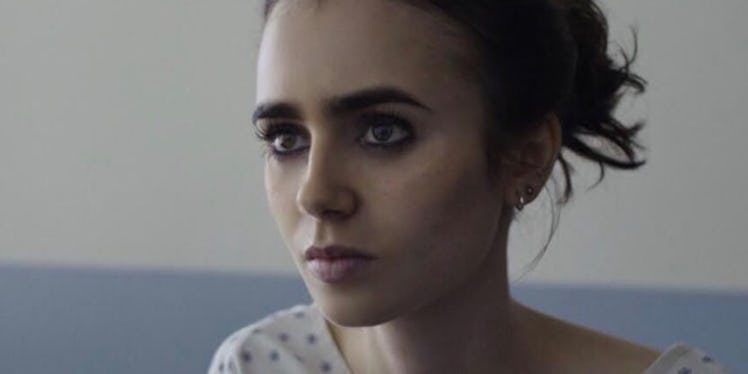
I Have An Eating Disorder, And Here's Why I'm OK With Netflix's 'To The Bone'
I was 21 years old when my psychiatrist diagnosed me with an eating disorder not otherwise specified (EDNOS).
Of course, this didn't come as a complete shock to me.
Battling through a toxic relationship, I'd dropped 20 pounds in less than a year as a direct result of anxiety. I wasn't sleeping well, I was hardly eating at all, and everything I did eat didn't stay down long enough to make a difference.
Once I made it past this point, I nursed my broken heart by drinking a lot of alcohol and stuffing myself with junk food at 1 a.m. every night to soak away the hangover, until one casual glance in the mirror reflected a 25-pounds-heavier version of myself.
Fast-forward to now, four years into my recovery, and I recently saw some headlines regarding Netflix's new original movie To The Bone, in which Lily Collins plays the character of Ellen, a young woman suffering from anorexia nervosa, whose shuffled attempts at recovery land her in a group home for youths.
The trailer has sparked a complex, but important conversation about eating disorders.
Many people argue that the film seems to "romanticize" eating disorders, and may be triggering to impressionable young viewers.
I sat back on the couch and watched the two-minute clip to make some judgments for myself.
With one hand clutching my phone in front of me, and the other wrapped around a throw pillow, I cried tears of relief.
Having gone back and forth between making peace and breaking the treaty with food for almost five years (and living with body dysmorphia for even longer), I've read works of fiction and watched films on the subject, and have yet to come across an artist whose piece, or overall intention, was to glamorize this illness.
To be honest, I'm not sure doing so is actually humanly possible.
Martha Mills "Marti" Noxon, the writer and director of To The Bone, admitted that she, too, suffered from anorexia and bulimia throughout her 20s, while Collins has also been vocal about her own struggles with the disease.
The film is so much more than a depiction of eating disorders.
Rather, I see it as a sort of video diary based on Noxon's own personal experiences.
It was a story, she felt, that needed to be told, because feature films on the subject are so few and far between.
Noxon told Vulture,
I had one producer tell me, 'It's such a small topic.' A small topic? Throw a rock in your office, and you'll hit a woman who is harming herself one way or another.
Eating disorders plague both men and women, and I believe the hardest topics to discuss are the ones society should absolutely be discussing, no matter how sensitive they may be.
I personally found nothing offensive in the To the Bone trailer, but I also think this may be because of where I am in my recovery.
If anything, I feel a sense of connection with these types of films and pieces of art.
What I do and do not eat does not depend on the environment around me, and I'm personally not so impressionable by the subject matter being discussed.
Sure, it's a constant inner struggle for me, but over time, I've managed to gain better control of that voice in the back of my mind.
If someone finds the premise of this film, or the title itself, to be triggering, they of course have a right to choose not to watch it.
Artists create their work to gain a better understanding of their experiences, and to hopefully resonate with others going through similar struggles.
Though certainly, some may find Noxon's film triggering, it might be unfair to write off the entire film as triggering and leave it at that. Like myself, many others may find comfort in a film that not only shares a similar story to one I've experienced, but one that may also help others recognize some of the warning signs.
During the trailer, Keanu Reeves' character Dr. William Beckman raises the question, “Why are we here?” A student answers, “Because we're alive.”
You and I, here and now, are living, and these traumas, these illnesses, are every bit the living, breathing creatures that human beings are.
No matter how hard it is to discuss the subject matter, it is so, so important to let people tell their stories when they have the resources and the opportunity to do so.
You never know who might be listening.
You never know who needs to be.